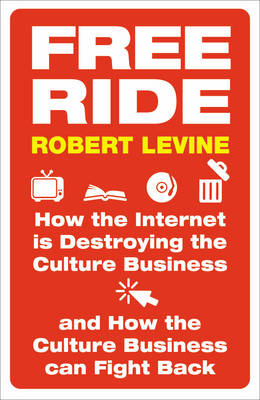 Wars over creators’ rights are pretty old – much older than copyright law. In one of the first “copyfights”, in 561AD, about 3,000 people died, writes Robert Levine in his new book Free Ride. St Colmcille and St Finnian clashed over the right to make copies of the Bible, with the King castigating Colmcille for his “fancy new ideas about people’s property”.
Wars over creators’ rights are pretty old – much older than copyright law. In one of the first “copyfights”, in 561AD, about 3,000 people died, writes Robert Levine in his new book Free Ride. St Colmcille and St Finnian clashed over the right to make copies of the Bible, with the King castigating Colmcille for his “fancy new ideas about people’s property”.
Levine’s book is a story of the digital copyright wars.
“I tried to write in an analytical way about something people get very emotional about. I don’t really believe the entertainment industry is good and the technology industry is bad; I just don’t see it as a morality issue. Businesses are in business to make money,” Levine says.
The book details the calamitous decisions made by the music business, particularly in its suing of end users for infringement. “In a few years,” he writes, “the major labels managed to destroy the cultural cachet they had spent decades building.”
The book also follows in detail Google’s “war on copyright” and the academics and activists who benefit from it. It comprehensively demolishes the arguments put by Lawrence Lessig, who helped create the cyberlaw industry. This is a book with masses of solid, meticulously researched detail.
I caught up with Levine in Berlin.
Read more
 Three years ago I caught a glimpse of a new social network built around music. You could follow people, chat with them, and enjoy the same music stream in real time.
Three years ago I caught a glimpse of a new social network built around music. You could follow people, chat with them, and enjoy the same music stream in real time.


